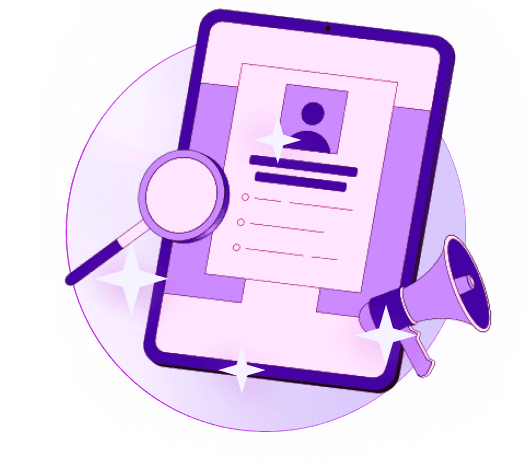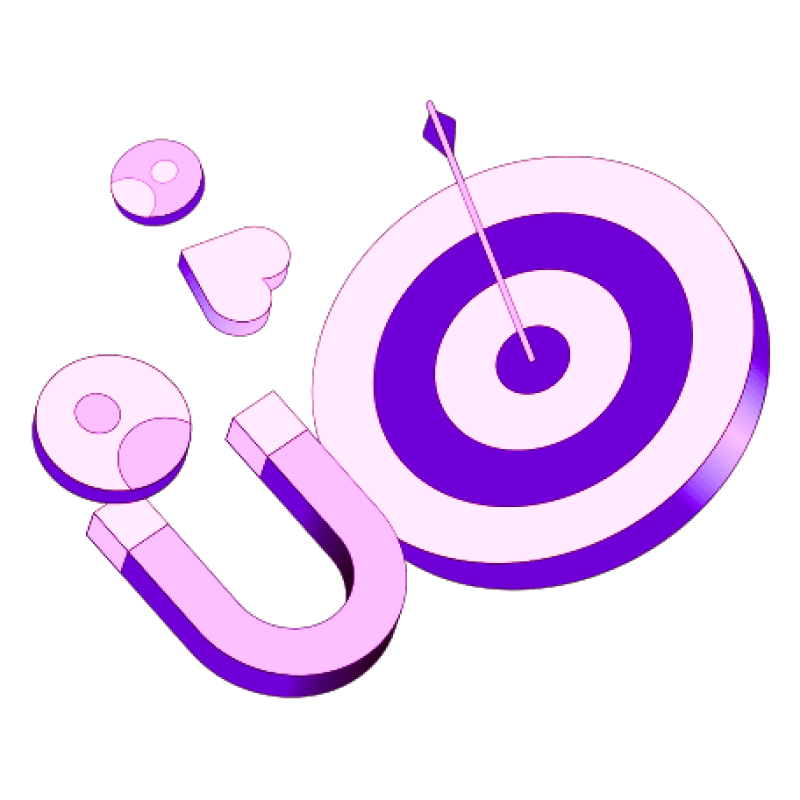Blogs
Articles


What is an AI Sales Agent?
Sales representatives spend only 28% of their time selling, while administrative tasks and non-revenue-generating work consume the rest. AI sales agents are changing how businesses operate by streamlining processes and delivering measurable results.
AI sales technology has taken the market by storm in today's ever-changing business world, dominating discussions from LinkedIn posts to boardroom meetings. These AI agents excel at analyzing vast amounts of customer data with remarkable precision. An AI sales rep works round the clock to nurture leads, answers questions instantly, and provides immediate next steps.
This piece will explore AI sales agents' core functions and examine how they revolutionize modern sales team's processes.
What is an AI Sales Agent?
Autonomous systems known as AI sales agents analyze and learn from sales and customer data to perform tasks with minimal human oversight. These smart applications do more than simple automation. They keep improving their performance through data analysis and take independent action to achieve results.
Your AI sales agent works like a virtual teammate in your sales department. It handles everything from initial customer contact to complex sales processes. These agents know how to reach out to leads through email, answer questions about products, set up meetings with potential clients, create quotes, and coach through sales roleplays. Their real value comes from working independently using available data, proven workflows, and smart reasoning.
These agents stand apart from regular automation tools that follow set rules. They can:
Learn and adapt their approach from each interaction
Make choices based on in-depth data analysis
Take action without waiting for instructions
Combine smoothly with your existing CRM system
You'll find most AI sales agents come as ready-to-use solutions that connect to your current technology. You can customize them to fit your specific business requirements. They follow strict security protocols and compliance rules while growing naturally with your business.
AI sales rep vs. AI assistant
Understanding the difference between AI sales agents and AI assistants is vital to know their roles in selling.
We used AI assistants as tools that respond when given specific commands. They help with office tasks like note-taking, email writing, or conversation summaries. These assistants need human guidance and work within set boundaries.
In stark comparison to this, AI sales agents work proactively and independently. They spot opportunities, take the lead, and drive results without waiting for instructions. An AI sales agent works independently and uses predictive analytics to improve sales strategies without needing perfect user commands.
The main difference shows in how they work alone and affect sales. Assistants handle routine tasks to make things run better, while agents help close deals and generate revenue. This makes AI sales agents especially useful for complex B2B sales cycles where technical accuracy, solution fit, and quick responses help seal deals.
Types of AI Sales Agents
Modern sales teams now rely on AI tools to boost their processes. Industry analysis shows that AI sales agents fall into several distinct types. Each type serves specific functions in the sales ecosystem.
Autonomous agents
AI sales technology's most independent form comes from autonomous agents. These systems work without human intervention and make decisions based on available data, workflows, and intelligent reasoning. They take care of entire tasks on their own, such as qualifying leads or scheduling meetings. Companies that use autonomous agents see much lower overhead costs linked to hiring and training human sales reps.
Autonomous agents stand out because they can:
Operate 24/7 across time zones
Handle big volumes of interactions at once
Deliver uniform, on-brand experiences to every prospect
Analyze interactions to improve sales strategies
AI voice bots conduct natural dialog during calls, while AI-powered chatbots involve website visitors. Sales Development Representative (SDR) agents nurture leads through email or chat on their own.
Assistive agents
AI sales assistants work among sales professionals rather than replacing them. These tools help sellers complete various tasks but need human oversight and final approval. An AI sales assistant might draft a prospecting email, but the seller must review it before sending.
These agents excel at creating tailored interactions and adjusting offers to match individual priorities. They help teams build more meaningful customer connections, and 71% of customers now expect personalized interactions from businesses.
Hybrid models in modern sales stacks
Forward-thinking companies adopt hybrid models that blend both autonomous and assistive capabilities. This all-encompassing approach balances efficiency with human connection. AI handles repetitive, time-consuming tasks while human representatives focus on high-value, strategic activities.
Success with hybrid models depends on target audience size and deal value. Companies with large markets and high-value deals can utilize AI-driven outbound systems to increase team capacity by reaching more prospects than humanly possible.
Enterprise accounts with narrow markets but large deal sizes get better results from a human-first approach. AI assists with research and message customization in these cases.
How AI Sales Agents Work?
A sophisticated technological framework powers every successful ai sales agent. These digital sales professionals work through four connected processes that help them operate on their own.
Data collection and integration
Every ai sales representative starts with detailed data gathering. These agents pull information from multiple sources like social media, websites, CRM systems, and digital interactions. The agents turn unstructured information into organized formats that anyone can analyze. This creates a clear picture of prospects, their behaviors, and potential buying signals.
Decision-making and planning
sales ai systems do much more than simple automation tools. They assess situations and develop action plans independently. These systems use advanced technologies like machine learning, natural language processing, and large language models. They analyze trends, patterns, and consumer sentiments quickly and accurately. AI agents use this analysis to identify promising leads, plan next steps, and set sales priorities.
Task execution and learning
AI sales reps take action once they make decisions. They qualify leads, send personalized emails, schedule meetings, and answer product questions on their own. On top of that, they get better through reinforcement learning. The system learns the right approach when an agent makes a mistake or fails to convert a lead. The model adapts and becomes better at predicting successful responses.
CRM and sales tool integration
ai agents blend naturally with existing sales infrastructure to work at their best. They connect with:
CRM platforms via APIs, webhooks, or SIP protocols
Communication systems like email and messaging apps
Scheduling tools and calendars
Data analytics platforms
This setup creates a single source of truth for customer information by logging and updating all interactions with up-to-the-minute data analysis.
Key Use Cases in Sales
AI sales agents bring powerful capabilities that reshape the sales funnel scene and change how teams convert prospects into customers. These intelligent systems handle the most time-consuming sales tasks, which lets human reps concentrate on building relationships and closing deals.
Lead generation and qualification
AI agents shine at identifying and qualifying potential customers at scale. These systems analyze thousands of prospects and match them against your ideal customer profile to score leads based on their conversion likelihood. Companies that use AI automation have seen revenue growth of up to 50% compared to their peers. AI sales agents connect with website visitors through live chat, qualify inbound leads by asking relevant questions, and send qualified prospects to the right team members.
Sales forecasting and pipeline analysis
Predictive analytics helps AI reshape sales forecasting completely. AI creates precise forecasts by analyzing historical data, market trends, and other key factors to allocate resources better. Research shows companies with accurate sales forecasts are 7% more likely to hit quota. The system spots pipeline bottlenecks, highlights potential losses, and gives useful insights to improve conversion rates at each sales stage.
Customer engagement and follow-ups
AI agents boost customer interactions by delivering personalized experiences through multiple channels. The system analyzes previous conversations to give contextual responses and spot buying signals for timely follow-ups. AI systems handle original questions and automatically write tailored follow-up emails based on meeting discussions, which saves 90% of email writing time.
Sales coaching and training support
Companies with successful AI sales coaching programs have increased their average deal size, sales activity, win rates, and new leads by 25%-40%. Digital coaches review call recordings to assess communication skills, give immediate feedback during customer interactions, and help reps practice pitches with roleplays customized for specific deals. AI coaching tools then identify each rep's strengths and weaknesses to create learning paths that adapt continuously.
Quote generation and scheduling
AI makes the quote creation and meeting scheduling process simple and quick. The system generates accurate quotes within minutes instead of days by analyzing customer needs and past interactions. [Check out Persana.ai to see how AI can transform your sales processes.] AI handles scheduling tasks efficiently by finding the best meeting times for both parties, sending confirmation emails, and managing rescheduling requests.
Conclusion
AI sales agents have altered the map of traditional sales. This piece shows how smart systems handle administrative work. Human representatives can now focus on building relationships and closing deals.
Businesses can choose from autonomous, assistive, and hybrid AI agents based on their needs. Companies pick solutions that match their audience size, deal values, and sales strategy. Teams using AI sales technology now automate 90% of prospecting tasks. Their revenue grows up to 50% more than competitors.
These digital sales professionals work through complex processes naturally. They collect data, make decisions, execute tasks and merge with existing systems. Their constant learning makes them valuable assets for modern sales teams.
AI sales agents work best alongside human sellers despite their impressive features. Success comes from mixing AI efficiency with human creativity and emotional intelligence. Start with specific, high-volume tasks where AI shows quick results. Let your team adapt before expanding its role.


Create Your Free Persana Account Today
Join 5000+ GTM leaders who are using Persana for their outbound needs.
How Persana increases your sales results
One of the most effective ways to ensure sales cycle consistency is by using AI-driven automation. A solution like Persana, and its AI SDR - Nia, helps you streamline significant parts of your sales process, including prospecting, outreach personalization, and follow-up.

